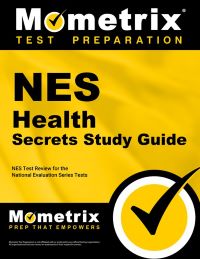NES Health Exam Study Guide
The NES Health Exam is a critical assessment for individuals aspiring to enter the field of health education and practice. This exam evaluates the knowledge and skills necessary for effective teaching and application of health education principles. Understanding the structure, eligibility criteria, syllabus, and format of the exam is essential for candidates to prepare effectively and achieve success.
Introduction
The NES Health Exam is designed to assess the competency of prospective health educators. It is part of the National Evaluation Series (NES) of exams, which are used by various states in the United States to certify educators. This exam ensures that candidates possess the foundational knowledge and skills required to teach health education at various educational levels. The exam covers a broad range of topics, including health promotion, disease prevention, and health education strategies, making it a comprehensive test of a candidate's preparedness for a career in health education.
Eligibility
Eligibility for the NES Health Exam typically requires candidates to have completed a bachelor's degree in health education or a related field. Some states may have additional requirements, such as the completion of a teacher preparation program or a certain number of hours in student teaching or fieldwork. It is important for candidates to check with their state's education department for specific eligibility requirements. In addition, candidates must register for the exam through the official NES website and pay the associated fees. Registration usually involves creating an account, selecting the desired test date and location, and providing any necessary documentation to verify eligibility.
Syllabus
The NES Health Exam syllabus is comprehensive and covers a wide range of topics relevant to health education. The exam is divided into several content domains, each focusing on different aspects of health education. Candidates should familiarize themselves with each domain to ensure thorough preparation. The main content domains typically include:
- Health Education as a Discipline: This domain covers the fundamental concepts of health education, including its history, principles, and philosophies. Candidates are expected to understand the role of health educators and the various settings in which health education can take place.
- Health Promotion and Disease Prevention: This section focuses on strategies for promoting health and preventing diseases. Topics include nutrition, physical activity, substance abuse prevention, mental health, and environmental health. Candidates should be familiar with current guidelines and recommendations for maintaining a healthy lifestyle.
- Health Education Strategies and Methods: This domain examines the methods and strategies used in health education to engage and educate individuals and communities. Topics include curriculum development, instructional strategies, assessment methods, and the use of technology in health education.
- Community Health and Advocacy: This section explores the role of health educators in advocating for community health. Candidates should understand the principles of community organization, the development of health programs, and strategies for influencing health policy.
- Professional Responsibilities and Ethics: This domain covers the ethical and professional responsibilities of health educators. Topics include professional conduct, ethical decision-making, and the importance of continuing education and professional development.
Format of the Exam
The NES Health Exam is typically a computer-based test administered at designated testing centers. The exam consists of multiple-choice questions designed to assess a candidate's knowledge and understanding of the core content areas. The exact number of questions and the time allotted for the exam may vary, but candidates can generally expect to answer between 100 and 150 questions within a two to three-hour timeframe.
The exam is scored on a scale, with a passing score determined by the state's education department. Candidates receive a detailed score report that outlines their performance in each content domain, providing valuable feedback for areas that may require further study or improvement.
To prepare for the exam, candidates should utilize a variety of study resources, including textbooks, online courses, practice exams, and study groups. Familiarity with the exam format and question types is crucial, and taking practice tests can help candidates build confidence and identify areas where they need additional focus.
In conclusion, the NES Health Exam is a vital step for individuals seeking to become certified health educators. By understanding the eligibility requirements, syllabus, and exam format, candidates can effectively prepare for the test and increase their chances of success. With thorough preparation and a strong grasp of the core content areas, candidates can demonstrate their readiness to contribute to the field of health education and make a positive impact on the health and well-being of individuals and communities.
NES Health Exam Study Guide
A Complete NES Health Exam Study Guide that includes sample questions, test tips and a complete study plan prepared by a team of expert and dedicated researchers. Cost-effective and qualified exam help from a committed exam preparation company.
NES Health Study Guide (printed book)

